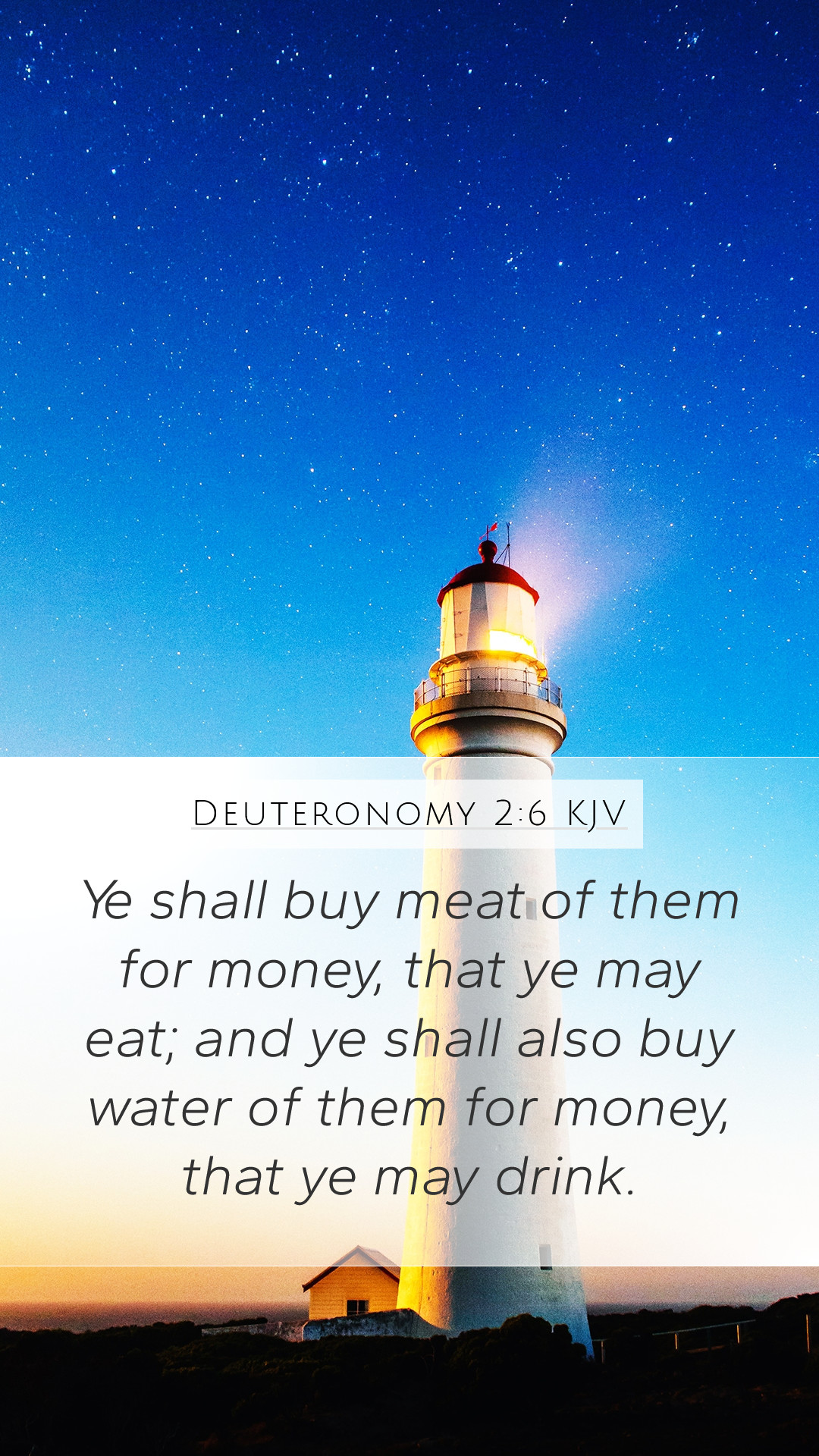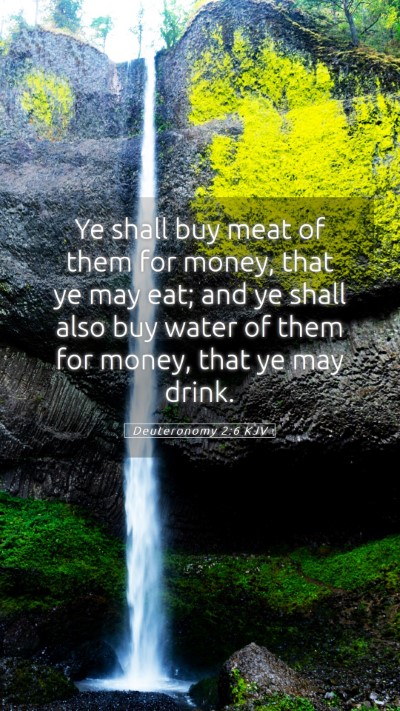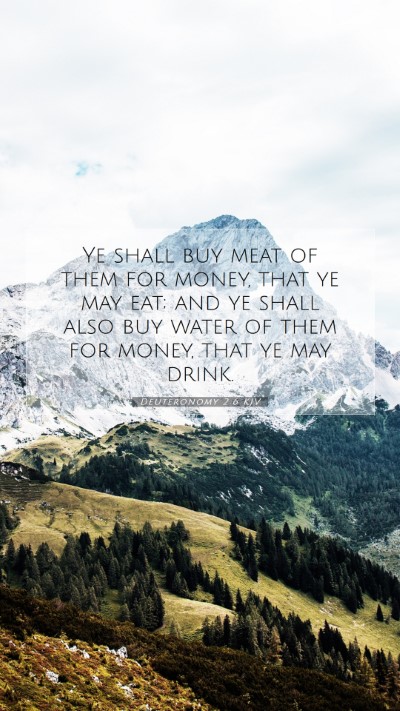Understanding Deuteronomy 2:6: A Comprehensive Commentary
Deuteronomy 2:6 states, "Ye shall buy meat of them for money, that ye may eat; and ye shall also buy water of them for money, that ye may drink." This verse emphasizes the Israelites' journey and their interactions with the surrounding nations during their wilderness wanderings.
Meaning and Interpretation
In this verse, God instructs the Israelites on how to conduct themselves when encountering the nations they would be passing through. The command to buy food and drink for money indicates several important principles:
- Respect for Others: The Israelites are commanded to pay for the resources they need. This shows an emphasis on respect for the property of others, even in the midst of their trials.
- God's Provision: While they were provided for in the wilderness, God also allowed them to engage with local nations, suggesting that His provision may come through divine means and through interactions with others.
- Preparation for the Promised Land: This verse signifies a transition period, as the Israelites were moving towards the Promised Land and needed to learn how to coexist with other peoples.
Commentary Insights
The following insights from renowned public domain commentaries enhance our understanding of this verse:
Matthew Henry's Commentary
Henry highlights that the directive to purchase meat and drink showcases God's care for the Jews during their travels. He indicates that even though they were God's chosen people, they were to act justly and righteously when dealing with others. This behavior underpins a theme of integrity and respect that should permeate the lives of believers.
Albert Barnes Commentary
Barnes expands on the notion that the Israelites were not to seize resources forcibly. By purchasing food and water, they acknowledged the rights of the indigenous people and practiced a principle of fair exchange, which reflects a moral code expected of God's followers.
Adam Clarke's Commentary
Clarke explains that this instruction was pivotal for the Israelites as they adjusted from a nomadic lifestyle in the desert to a more settled existence. The act of buying food and drink symbolized a new phase in their journey and readiness to establish more permanent relationships with neighboring nations.
Moreover, Clarke emphasizes the significance of purchasing sustenance during a time of scarcity, underlining God's provision and faithfulness throughout their journey.
Application of Deuteronomy 2:6
The teachings within Deuteronomy 2:6 can be applied to contemporary life in several ways:
- Promoting Justice: As believers, we are called to respect the rights of others and engage with them fairly, mirroring God's desire for righteousness.
- God’s Continued Provision: Just as God provided for the Israelites, we are reminded of His ongoing presence and support in our lives, even through our relationships with others.
- Learning from History: Understanding the historical context of this verse can guide us in making ethical decisions in our current situations.
Cross References
Deuteronomy 2:6 relates to several other scripture passages, which enhance its meaning:
- Exodus 12:35-36 - The Israelites ask for items from the Egyptians as they prepare to leave.
- Deuteronomy 23:7-8 - Guidelines regarding the treatment of the Edomites and Egyptians.
- Leviticus 25:14 - The law regarding buying and selling among the Israelites.
Conclusion
In summary, Deuteronomy 2:6 serves not only as a historical record of the Israelites’ journey but also provides profound \textit{Bible verse meanings, interpretations, understanding, and explanations} that resonate with believers today. Through careful analysis and commentary, we uncover essential lessons about justice, respect, and God's consistent provision in our lives.


